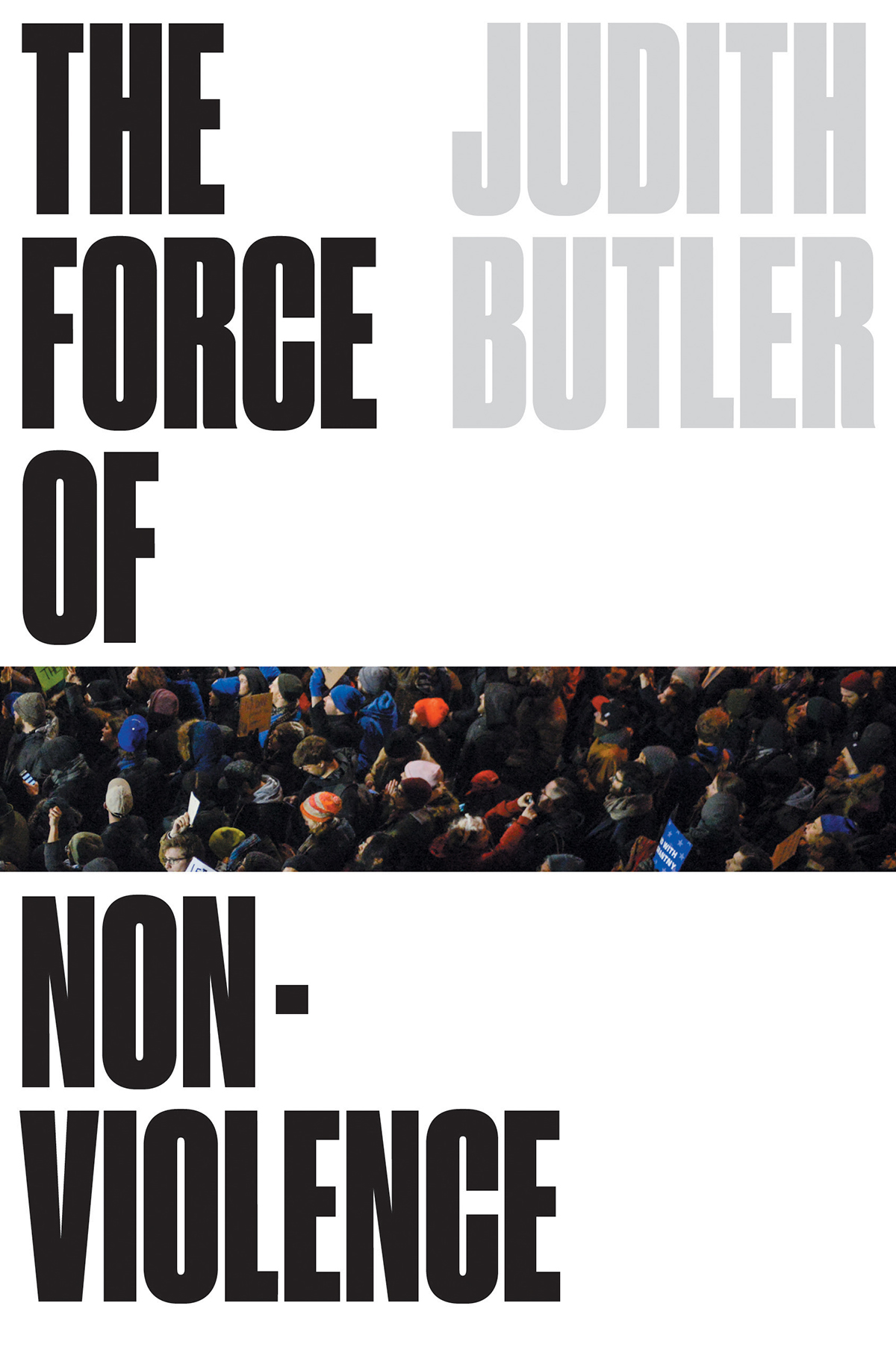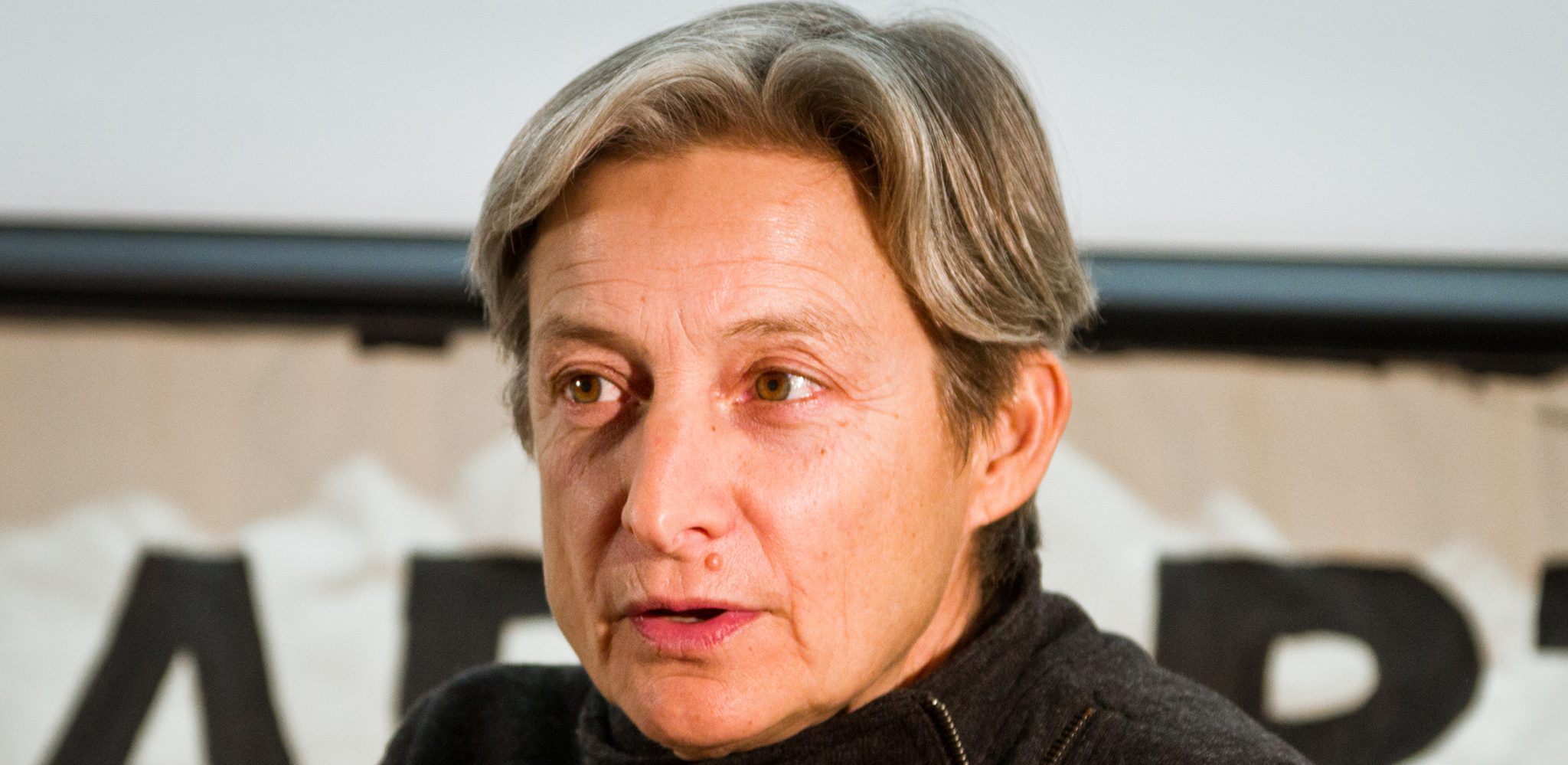Judith Butler’s The Force of Nonviolence unpicks how violence is framed as legitimate or illegitimate
Halfway through The Force of Nonviolence, Judith Butler observes that ‘we might prefer to adopt a humanist framework and assert that everyone, regardless of race, religion, or origin, has a life that is grievable, and then to militate for an acceptance of that basic equality’. But, she goes on, in adhering to the ideal ‘that every life ought to be grievable’, ‘we badly misrepresent reality, in which radical inequalities abound’. This is a world in which ‘lives are not equally valued’, one of ‘racism, xenophobia, homophobia and transphobia, misogyny, and the systematic disregard for the poor and dispossessed’. Why whole societies currently seem to accept – and ignore – the deaths of human lives at home and abroad is the moral and political problem that exercises Butler throughout The Force of Nonviolence.
Butler – celebrated for her seminal book Gender Trouble (1990) – here combines deconstruction and psychoanalysis to unpick how violence is framed as legitimate or illegitimate, and how, perversely, those who are most powerless are often designated – by the power of the state – as the source of violence, whereas ‘state violence’ always cloaks itself in the language of legitimate ‘force’. Invoking Michel Foucault’s concept of biopolitics, Butler highlights how contemporary biopolitical power over life differs from the ‘power of the sovereign’: while the sovereign could, in Foucault’s terms, ‘make die or let live’, the biopolitical has the power ‘to make live or to let die’. This form of power is both everywhere and nowhere, not least in the ‘phantasmagoria of racism’ that might explain the actions of, say, police officers killing black Americans who pose no threat: how, Butler asks, could Walter Scott, shot dead in 2015 as he ran away from South Carolina police, ‘become phantasmagorically turned around, made into a threatening figure to be killed?’ Or similarly, how can we understand how European governments disavow responsibility for ‘the thousands of migrants who have lost their lives in the Mediterranean’? Racism, here, informs what Butler calls the ‘metric of grievability’, which deems such lives ‘not worthy of safeguarding’.

Butler’s attempt to explain this moral vacuity, even while liberal society pays lip-service to the notion of equality of human rights, leads her into a complex psychoanalytical exploration of how the individual subject, and entire societies, imagine others as a violent threat against their own selfhood. Going back to the theories of psychoanalysts Sigmund Freud and Melanie Klein, Butler examines the ambiguities that lie at the heart of the social bond between people – the tensions between love and hate, nurture and loss, hostility and dependency – which she then maps onto the social realm. Returning to Freud’s concept of the ‘death drive’, Butler argues that rather than deny the destructive drives that human beings harbour, an ethics of nonviolence should emphasise the life of the social bond not as the individualist liberal concept of a ‘contract’ between otherwise independent, competing individuals, but as ‘based in embodied forms of interdependency’. ‘The obligation not to destroy each other’, she writes, ‘emerges from the vexed social form of our lives, and leads us to reconsider whether self-preservation is not linked to preserving the lives of others.’
The limit of Butler’s psychoanalytical horizon, though, is that it cannot really explain what lies behind the ‘war-logic’ that distorts people’s capacity for solidarity into a paranoid fear of others. Butler’s examination of the correspondence between Freud and Albert Einstein (published in 1933) regarding the psychological motivations of populations during the rise of fascism, offers insights into how people lose their inhibitions against violence towards others, but tells us nothing about the economic and political causes of war. So The Force of Nonviolence is frustrating for its lack of substantial suggestions for which political forms might embody this ethics of nonviolence. Perhaps it flickers into view for a moment, but Butler barely registers it: ‘Freud’, she writes, ‘speculated that an evolution of the masses may be possible through education and the cultivation of solidaristic sentiments of a non-nationalist sort.’ If there is a name for the political form of radical equality and reciprocity in the social bond, it is democracy. Yet Butler names it only once, and passes it by.
Judith Butler, The Force of Nonviolence: The Ethical in the Political, Verso 2020.
